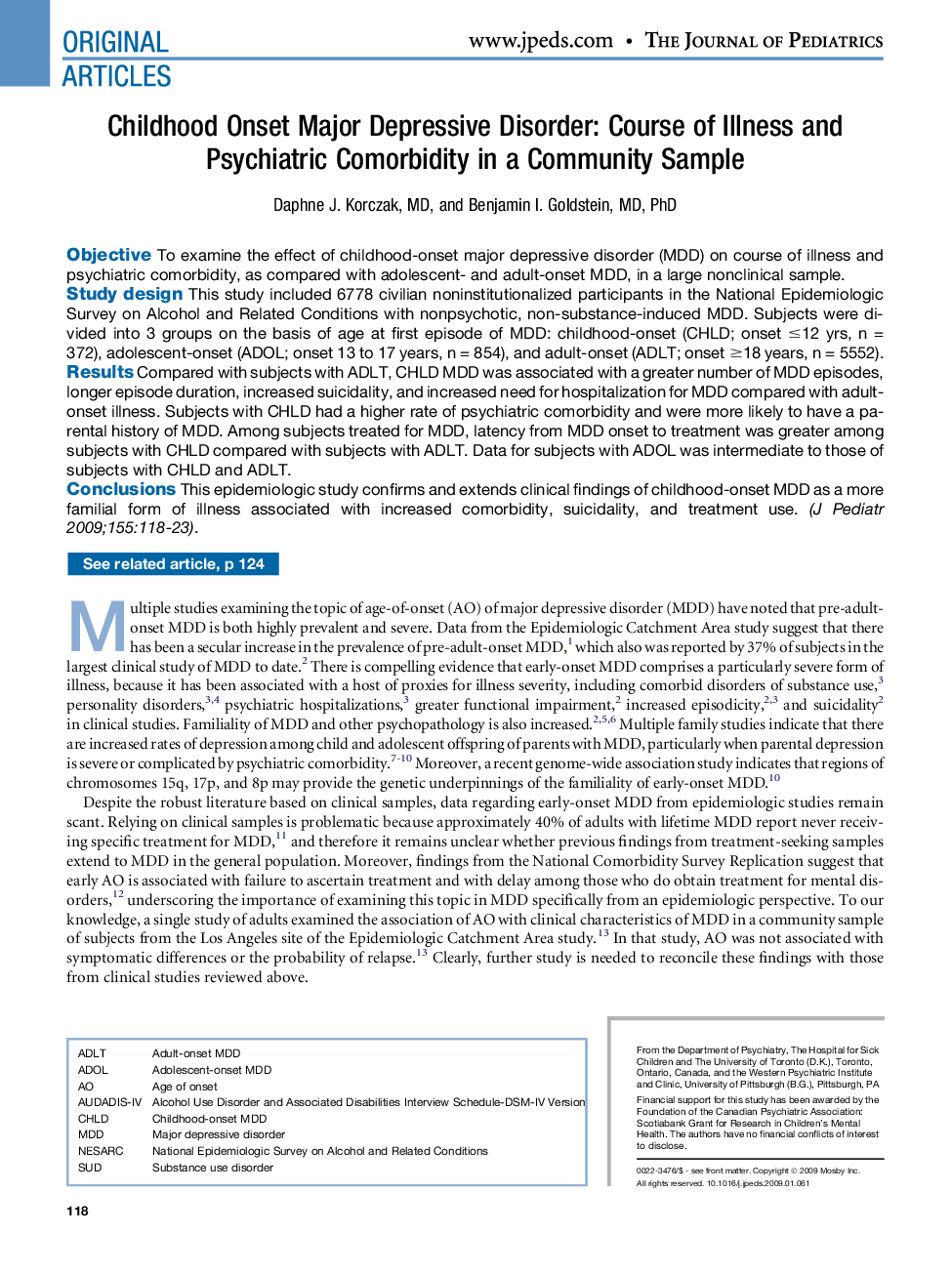| Article ID | Journal | Published Year | Pages | File Type |
|---|---|---|---|---|
| 4166681 | The Journal of Pediatrics | 2009 | 6 Pages |
ObjectiveTo examine the effect of childhood-onset major depressive disorder (MDD) on course of illness and psychiatric comorbidity, as compared with adolescent- and adult-onset MDD, in a large nonclinical sample.Study designThis study included 6778 civilian noninstitutionalized participants in the National Epidemiologic Survey on Alcohol and Related Conditions with nonpsychotic, non-substance-induced MDD. Subjects were divided into 3 groups on the basis of age at first episode of MDD: childhood-onset (CHLD; onset ≤12 yrs, n = 372), adolescent-onset (ADOL; onset 13 to 17 years, n = 854), and adult-onset (ADLT; onset ≥18 years, n = 5552).ResultsCompared with subjects with ADLT, CHLD MDD was associated with a greater number of MDD episodes, longer episode duration, increased suicidality, and increased need for hospitalization for MDD compared with adult-onset illness. Subjects with CHLD had a higher rate of psychiatric comorbidity and were more likely to have a parental history of MDD. Among subjects treated for MDD, latency from MDD onset to treatment was greater among subjects with CHLD compared with subjects with ADLT. Data for subjects with ADOL was intermediate to those of subjects with CHLD and ADLT.ConclusionsThis epidemiologic study confirms and extends clinical findings of childhood-onset MDD as a more familial form of illness associated with increased comorbidity, suicidality, and treatment use.
